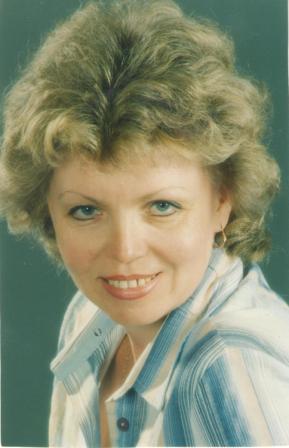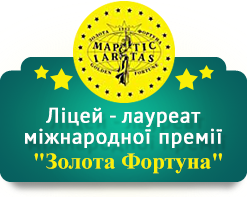Department of World Literature and Russian language

Head of Department - Kovaleva Svetlana Yevgenivna
Teachers of the department:
Irina Borisova, Matveicheva Natalia, Mashkevich Vira, Starikova Olena

Matveicheva Natalia Mykolayivna - teacher of foreign literature.
She graduated from KSU them. Shevchenko specialty "Philology" specialty "Russian language and literature (diploma in 1980) and the University. Dragomanova in "Teacher of Ukrainian language and literature" (diploma in 2000).
The deputy director of educational work. . Has proficiency "Specialist Luxury" and the title of "teacher-methodologist" and "Excellence in Education of Ukraine", a departmental awards.
Natalia Nikolaevna is the author of the program on methods of teaching foreign literature for higher education, the work uses techniques developed in the international educational program "Reading and writing - for Critical Thinking" (CDAP), created in Iowa American and Australian scientists.
Among students Natalia Nikolaevna always present winners of competitions at various levels of world literature.

Kovalev Svetlana Yevgenivna - works in Lyceum since 1977, has a university degree (specialty - teacher of Russian language and literature).
In Lyceum working as a teacher of Russian language and literature, world literature. Head of the Department of World Literature and Russian; Teacher-Methodist, has a higher level of proficiency and the title of "Excellence in Education of Ukraine". Has departmental awards.
Svetlana Y. is a member of District and City Council of methodological competitions.
Students Kovaleva S. each year are winners or winners of various competitions of foreign literature, Russian language and literature.
Among teaching materials should be noted Svetlana E. authoring program for the course "Art and culture man," Lyceum option program for foreign and Russian literature, which have obtained approved by the Ministry of Education "Approved." After school started life of theater festivals miniatures and literary and musical evenings are very popular among students and is a unique feature of the Lyceum of life.
Methodical published in the journal "School" and "rural school Ukraine" publishing "School World".

Mashkevich Vira Yaroslavivna - has higher education, graduated from the Kalmyk Pedagogical University, "The teacher of Russian language and literature."
Direct teaching experience - 30 years. According to the preliminary certification has a higher level of proficiency and the title of "teacher-methodologist".
Vira Yaroslavivna works in high school since 1987. From 1997 to 2004 worked as deputy director of educational work, from 2005 worked as a deputy for educational work. Has departmental awards (certificates Rouault, HUON, MES) and thank Shevchenko district in Kyiv state administration.
Articles theme is working teacher - "Using innovative technologies in the classroom world literature and Russian language." He teaches Russian and world literature, is deputy director general organizational issues. Priority areas of work - personal approach in the study of educational material.
The article "Innovation dramaturhyy Chekhov" in "Russian language and literature in Ukraine".

Borisova Irina Mikhailovna - teacher of Russian language and literature. Graduated KDPI them. Gorky in "teacher of Russian language and literature." Teacher-Methodist, has a higher level of proficiency and the title of "Excellence in Education of Ukraine". Total teaching experience - 40 years.
Great command of technique the subject, said his main objective spiritual development of students, the formation of moral personality traits.
At the heart of the relationship Irina children is respect for the individual child, a genuine interest in his state of mind, trust in good makings of each student. Good relationship with students to help them in school.

Starikova Olena Vasilivna - the teacher of the highest category. An experienced teacher of world literature and responsible broadcaster. In their lessons seeks to capture students world literature and culture. Leads circle "History of Religions" course which aims to give students knowledge about spiritual sources of different cultures. In class work arouses interest in students the culture of his native land. Students Elena repeatedly na winners won district and local competition for world literature.
The main objective of the teaching staff of the department:
Ø develop, improve and implement training programs to develop intellectual and creative skills, abilities to perform research tasks;
Ø create conditions for comprehensive development of talented children and help students in their personal growth and development;
Ø promote a worldview.
In his educational work department uses the following criteria that determine the level of student achievement:
Ø teaching staff and teaching skills of teachers;
Ø respect for the students to focus on their personal development;
Ø encourage students through competitions, contests, competitions;
Ø interest of students and parents in high academic achievements of teachers;
Ø joint activities in achieving good results.
Each teacher is important to understand, to be successful in life, modern Lyceum graduate should be able to work independently with a large amount of information, critical and creative thinking, be sociable. The purpose of our department is not outlining range of knowledge, skills, and personal development opportunities, identify interests, aptitudes, priorities and providing opportunities for students to implement them. In recent years, increased scientific-theoretical and methodological level teaching Russian and world literature, increased attention to developing educational and training function, to find effective forms and methods. Based on these requirements, the department acts as scientific and methodical laboratory where implemented research work as school pupils and teachers. Many times our students sat prizes in contests at various levels of world literature and Russian language and literature.
OBJECTIVES OF THE CHAIR:
Ø give students an idea of the world literary process, introduce students has with the works of various kinds and genres that define major literary trends of different eras and countries and characterize basic patterns and trends of the literary process in different historical periods.
Ø Instill pupils skills of literary analysis, to reveal its essence, tasks and teach yourself to work on a literary text. Using research work in literary form, develop creative abilities of students, to promote understanding individual works of art.
Ø by students to reveal the beauty of the poetic word, help them understand the moral and aesthetic values inherent in the global poetic classics, contribute to obtaining aesthetic pleasure of art and learn to understand what it is called.
Ø To promote the development of creativity, individual creative abilities of school pupils.
Ø promote philosophical principles of life.
In an analysis of works of art is solved complex set of problems associated with ideological, aesthetic and moral education. Therefore, one of the biggest challenges - a new generation of high cultural and aesthetic level, which has the world's cultural values.
Before the chair and put the following tasks:
Ø methodological
- Improvement of the lessons of the Russian language, literature and world literature through student-centered learning system;
- Introduction of new, active forms and methods, advanced educational technologies as a means of self-activation of creative activity of students;
- Application of computer technology;
- Creative personality development;
- Introducing innovative lessons;
- Constant search for efficiency lessons.
Ø academic
- Intellectual and spiritual development of the individual.
- Providing high quality knowledge and development of creative abilities of students based on teacher professionalism;
Ø educative
- Differentiation of the educational process for opening each individual student, his abilities and talents;
- Create optimal conditions for self-development and individual student aimed at improving mental and physical abilities, mastery of knowledge of the fundamentals of science.
Deep satisfaction with their work occurs in teachers when there is a belief that a child in school, not only acquire knowledge, but knowing the depth, wisdom and beauty of life. If true, the child learned in school helped her realize a harmonious whole person, we can say that teachers completed their task.




